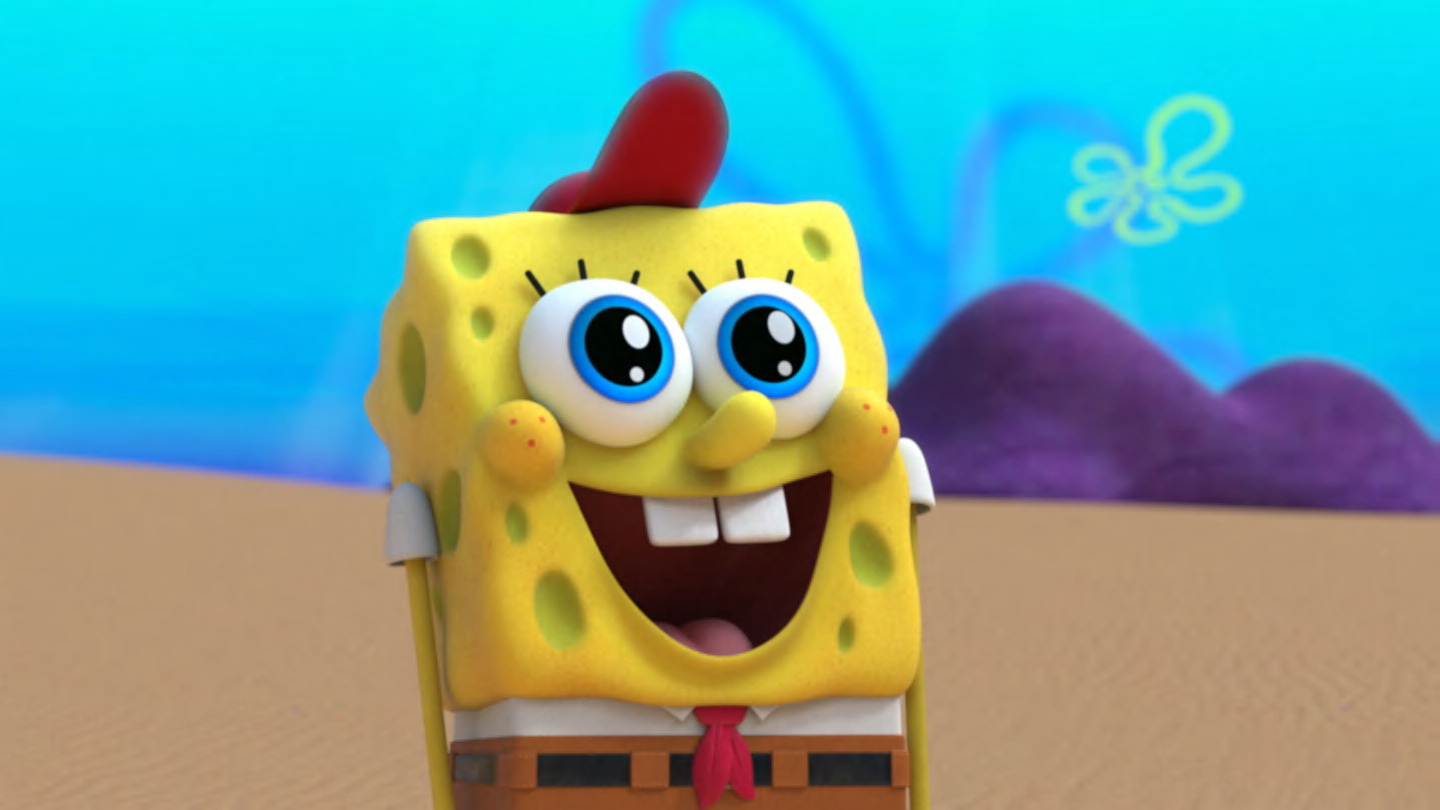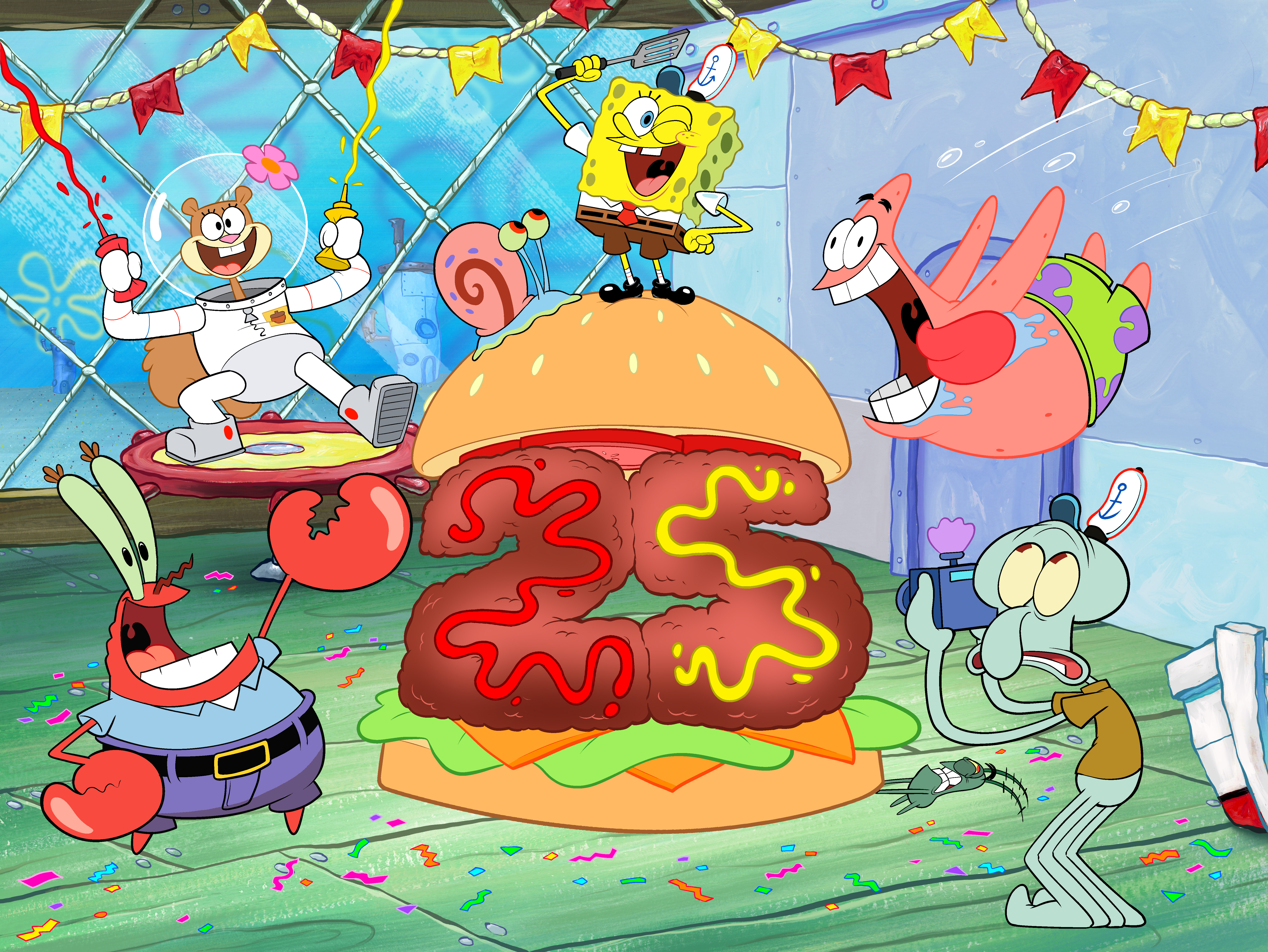
As a long-time fan of SpongeBob SquarePants, I was thrilled to hear the recent confirmation from his voice actor, Tom Kenny, that my beloved cartoon character is autistic. This revelation has brought a new perspective to the way I view SpongeBob and his unique quirks that have endeared him to audiences for over two decades.
SpongeBob SquarePants, the beloved cartoon character from Nickelodeon’s children’s animation with a sunny disposition and yellow color, has been identified as having autism traits by his voice actor, Tom Kenny. During a panel at Motor City Comic Con in May, Kenny acknowledged a fan’s question about this topic, stating: “Absolutely! That’s part of what makes SpongeBob special, just like how your unique qualities define you.”
SpongeBob resonates with the autism community due to his shared social characteristics, including a positive outlook and preference for his own perspective of the world. He thrives in his unique bubble while appreciating the presence of others, even when their reactions towards him may not be entirely favorable. For instance, SpongeBob interprets Mr. Krabs’ criticisms as compliments or encouragement, and views Squidward’s sarcasm as a form of support rather than an insult.
It’s good progress that SpongeBob serves as a character advocating for disability representation in media. however, Kenny shared that SpongeBob’s portrayal of being on the autism spectrum was not initially intended to be made known to the public.
During Entertainment Weekly’s SDCC 2024 special coverage for SpongeBob SquarePants’ 25th anniversary, Kenny revealed that the revelation about SpongeBob having autism was not intended to be made public. Additionally, it is important to note that Kenny is not a professional when it comes to autism and its different presentations.
Kenny admitted upfront that he isn’t a medical doctor and that SpongeBob is a fictional character. However, he shared an experience with a young person on the autism spectrum who asked him if SpongeBob was similar to them. Kenny responded affirmatively, explaining that both the young person and SpongeBob share unique qualities and are wonderful in their own ways.
Keny continued to explain that his discussion with the fan was meant to be a personal exchange, yet he’s pleased it became public as SpongeBob’s experience might benefit others in the future.
That was a nice moment, and I never meant for it to go public or anything. It was just [a] private moment that I had with a fan, but it seems like it’s been empowering and helpful to people out there.

SpongeBob SquarePants’ autism could have a positive impact
Media plays a significant role in providing representation, allowing fans to identify and empathize with characters and their stories. This connection can make viewers feel understood, strong, or less isolated in their own experiences. The portrayal of disability in media has advanced over time. Yet, it’s crucial that representations are authentic. We should avoid stereotypes like the “pity me” trope and ensure that characters with disabilities aren’t used solely as tokens for non-disabled characters to perform good deeds.
I’ve spent a large part of my life as a member of the disability community, and I can’t help but feel deeply disheartened when I encounter media writing that reduces us to mere props or instruments in a storyline. This kind of portrayal not only harms the reputation of the show or film but also poisons the relationship between the able-bodied audience and people with disabilities.
SpongeBob carries his distinctive and sunny disposition with him, making places come alive as he goes. His autism doesn’t push him away from others. Known for his diligence and finding joy in simple things, SpongeBob is well-regarded in his community. Many adults and children with autism and related conditions identify with the character, creating a strong connection. This bond is beneficial as SpongeBob himself exudes positivity. In all the episodes I have seen, he never uttered a harsh word towards anyone; this is an admirable trait, given how challenging it can be to maintain such behavior.
As a huge fan of SpongeBob SquarePants, I can’t help but notice the significant impact this beloved cartoon character has on representation, regardless of it being an animated series. For children, including those with disabilities, seeing a character as unique and relatable as SpongeBob can be truly empowering. It provides them with the confidence to embrace their individuality and face the world in their own way. This representation extends beyond the screen and into everyday life, fostering a more inclusive society where everyone feels seen and valued.
Read More
- DBD July 2025 roadmap – The Walking Dead rumors, PTB for new Survivors, big QoL updates, skins and more
- PUBG Mobile Sniper Tier List (2025): All Sniper Rifles, Ranked
- Here Are All of Taylor Swift’s Albums in Order of Release Date (2025 Update)
- Delta Force Redeem Codes (January 2025)
- COD Mobile Sniper Tier List Season 4 (2025): The Meta Sniper And Marksman Rifles To Use This Season
- Stellar Blade New Update 1.012 on PS5 and PC Adds a Free Gift to All Gamers; Makes Hard Mode Easier to Access
- [Guild War V32] Cultivation: Mortal to Immortal Codes (June 2025)
- How to Update PUBG Mobile on Android, iOS and PC
- Best Heavy Tanks in World of Tanks Blitz (2025)
- Best ACE32 Loadout In PUBG Mobile: Complete Attachment Setup
2024-07-29 18:53